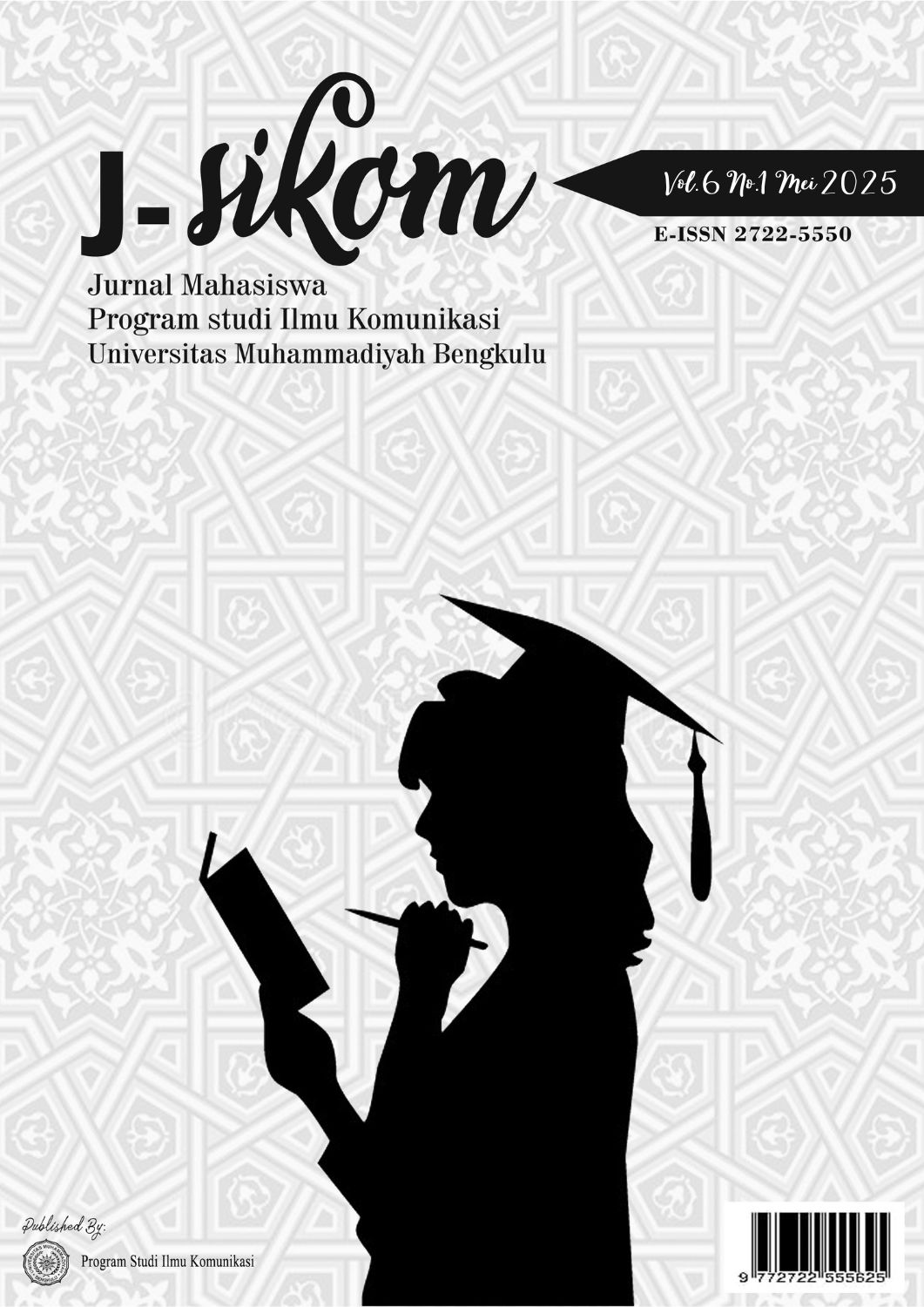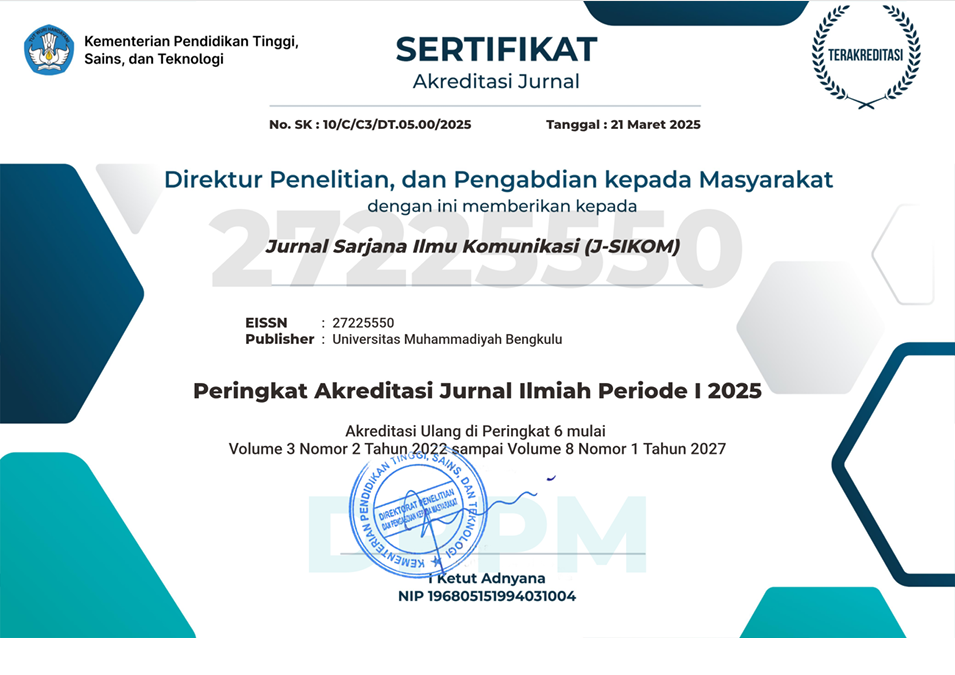indonesia
DOI:
https://doi.org/10.36085/jsikom.v6i1.8141Abstract
Abstract. Korean dramas, as a form of popular cultural product, play a significant role in representing social and cultural values, including gender constructions rooted in patriarchal systems. This study aims to examine how patriarchal culture is represented in the Korean drama When Life Gives You Tangerines using a descriptive qualitative approach and Roland Barthes’ semiotic analysis method. The drama is analyzed as a cultural text rich in meaning, where symbols, narratives, and characters reflect patriarchal ideologies. The findings reveal that the drama reinforces patriarchal myths, such as gender role division, educational discrimination, and social legitimacy of gender inequality, as well as the reinforcement of traditional values that position women in subordinate roles. This representation demonstrates that popular media like Korean dramas play a major role in reproducing patriarchal ideology through seemingly natural cultural portrayals.
Keywords: Korean drama, patriarchy, semiotics, When Life Gives You Tangerines, representation









